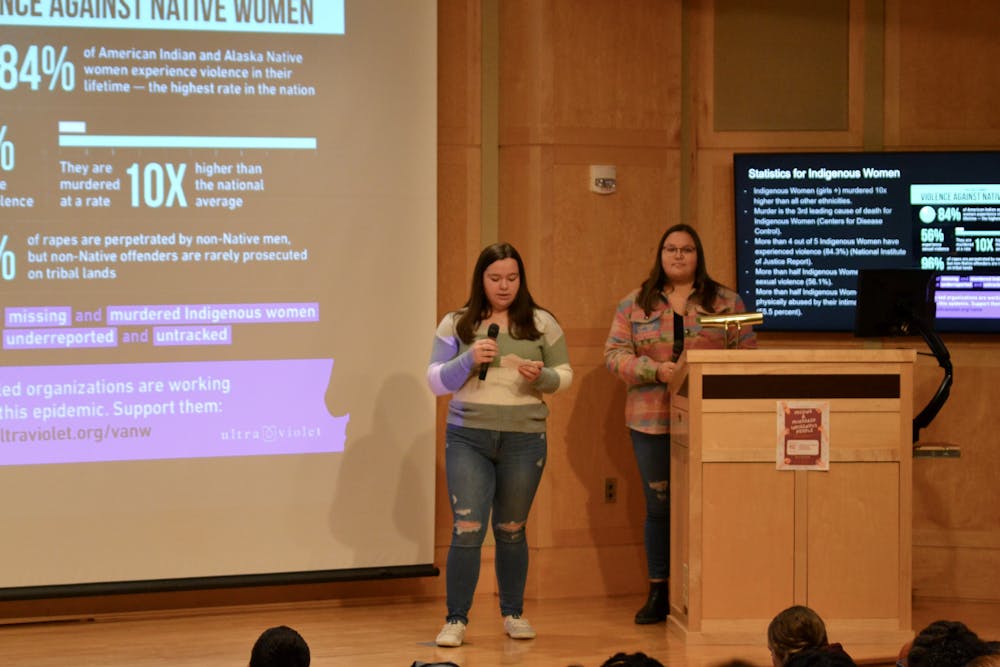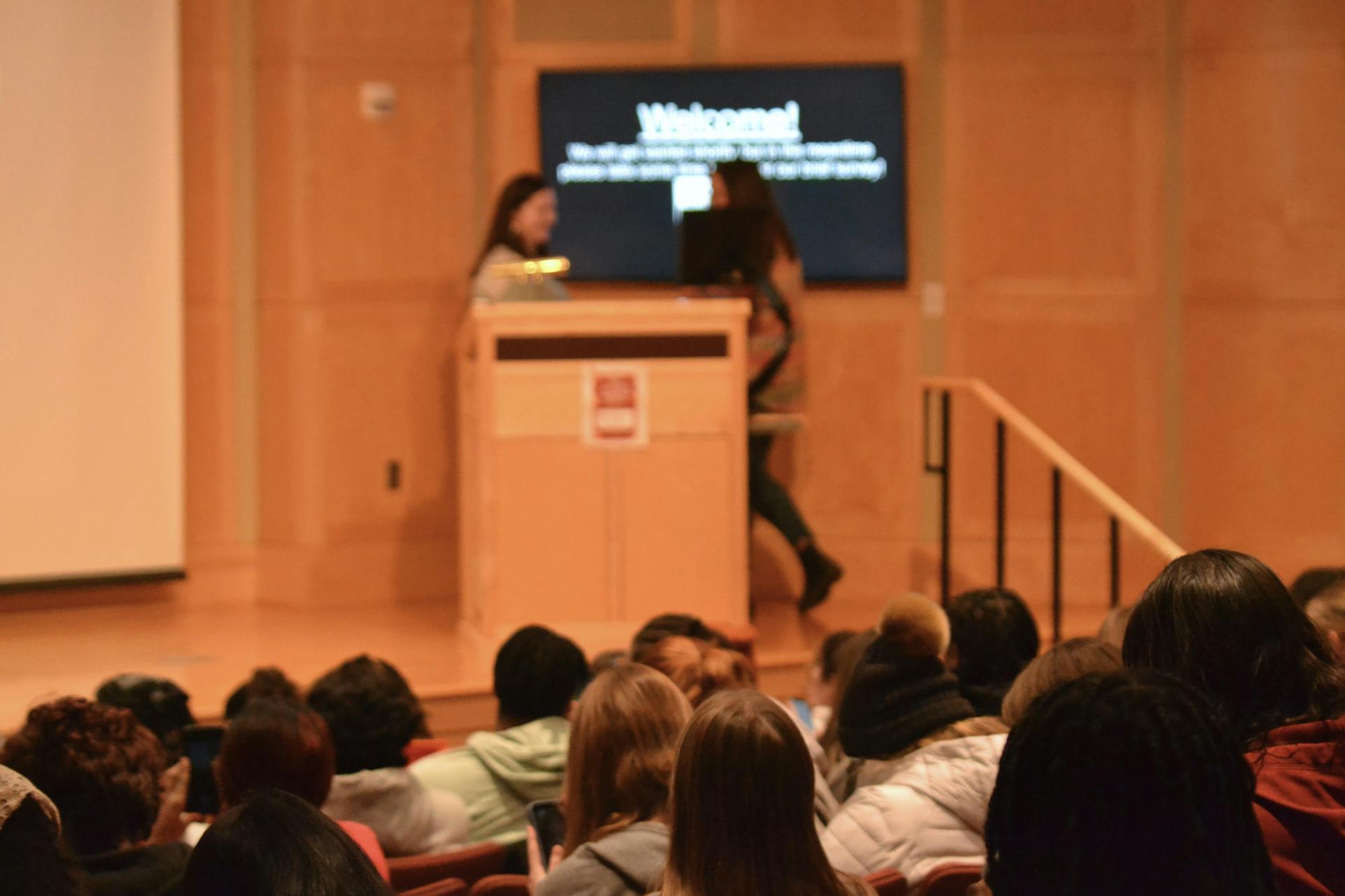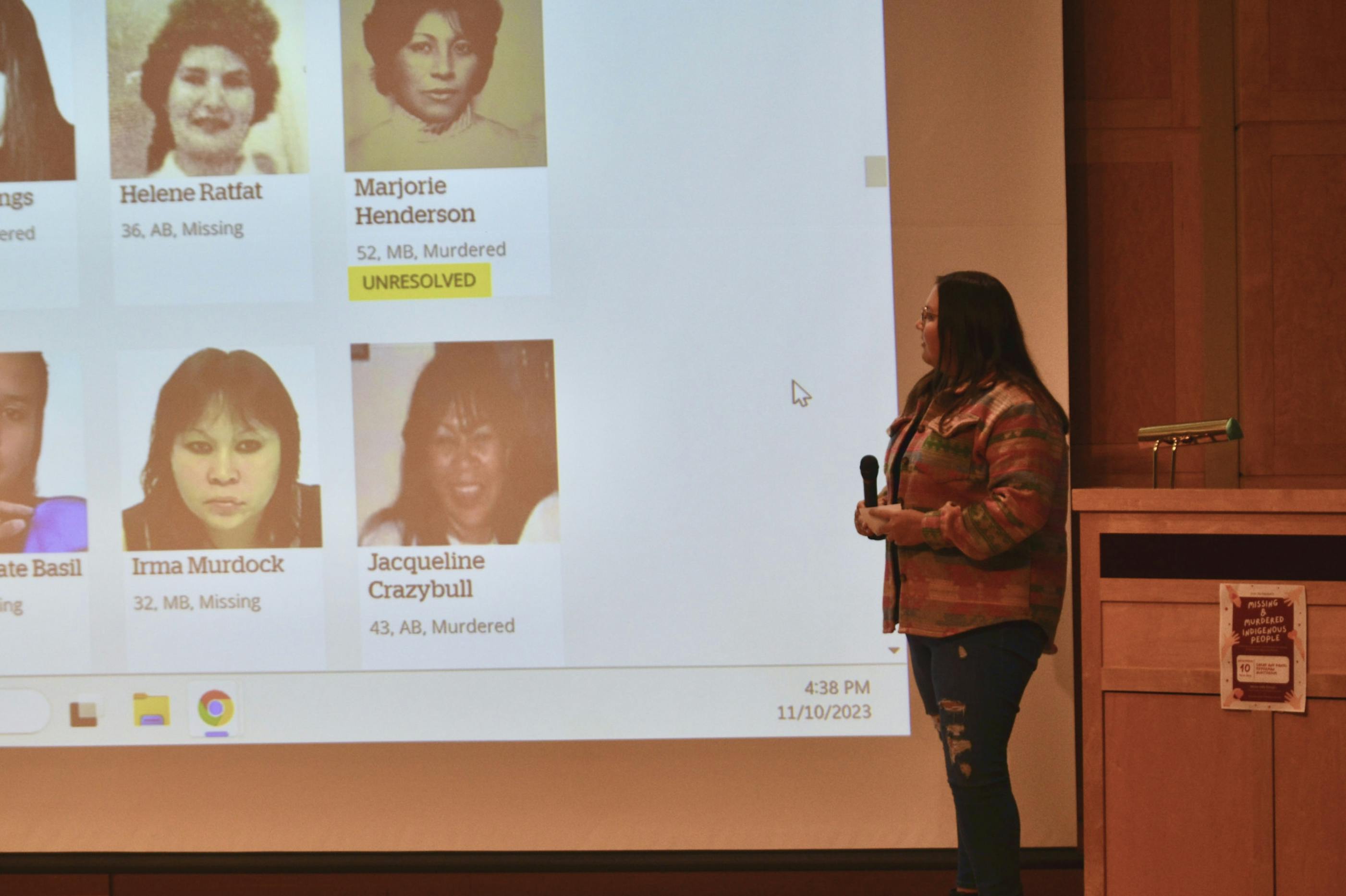Say her name louder
Missing and Murdered Indigenous People

Missing and murdered sister, daughter, mother -- it is a reality that Native American people live through every day.
On November 10, Marissa Neveau and Maureen Belcher presented on Missing and Murdered Indigenous People (MMIP) at Sarah and Daniel Opperman Auditorium. The event was a part of Native American Heritage month.

“We came up with this idea because it’s something that really needs to be addressed and more people need to be educated on (MMIP), no one really talks about this issue,” Neveau said.
Through their presentation, Neveau and Belcher wanted to advocate for and support Native American community.
The presenters shared some history on boarding schools, sovereign nation, forced relocations and generational trauma. History helps people to understand how and why to advocate and help, they said.
“My great grandma was part of the boarding schools," Neveau said. "I feel with half of my family being Native, it’s definitely something I want to push to educate."
During the presentation, Neveau and Belch showed the "Say Her Name" documentary directed by RAIN. The film followed the four cases of missing and murdered Indigenous girls in Bighorn County, Montana, the epicenter of MMIW.
Heather Syrette was eager to reflect during the presentation.
“It's going through a movement of change where a lot of our younger community members are wanting to educate more, (still) I think it is really sad because statistically we are only like a 1% (of the United States population), maybe a bit more ... because of MMIP,” said Syrette.
Statistics that Neveau and Belcher showed were that Indigenous women and girls are murdered ten times more than all other ethnicities. The statistics go up more and more because there really isn't much attention directed towards the cases, they said.
According to Indian Health Service website, 84% of indigenous women have experienced violence in their lives. Additionally, 56.1% of indigenous women experience sexual violence, and 55.5% have been physically abused by their intimate partners.
Approximately 1,500 American Indian and Alaska Native missing persons have been entered into the National Crime Information Center (NCIC) throughout the U.S. There are around 4,200 missing and murdered cases that have gone unsolved, according to the U.S Department of Indian Affairs.
The presenters also shared the resources to spread awareness and advocate for MMIW.
Belcher said educating herself on the issue was important for her because she has friends who are Native American.
“Just me being a student at Central Michigan, I think it’s really important for me to educate myself with us being on Anishinaabe land," Belch said.
Mount Pleasant has cases of MMIW as well. In 2021, Massey Pamp was stabbed in her apartment in Mount Pleasant. In April 2023, Patricia Jackson gone missing.





